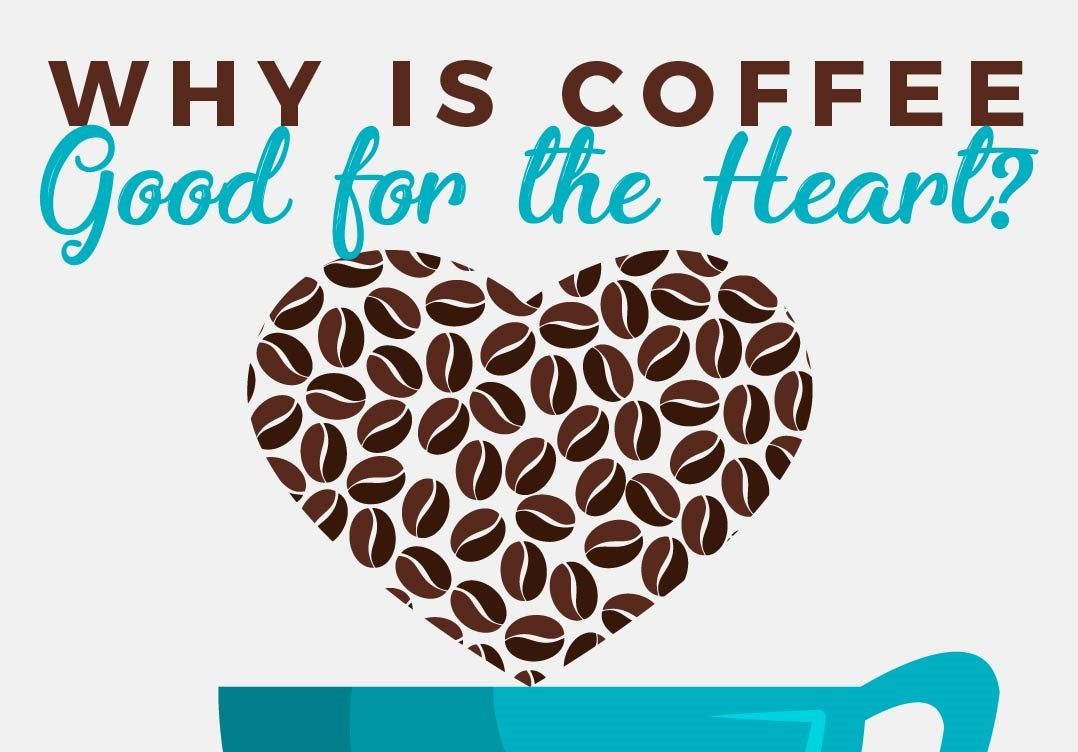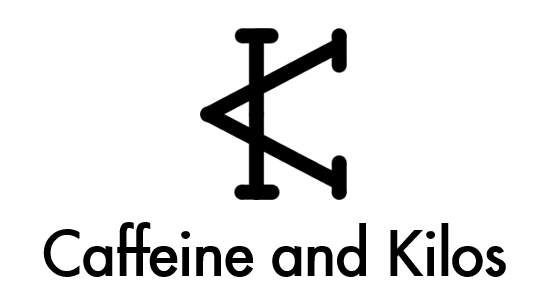
How Much Coffee is Good for Healthy Heart
Share
They say an apple a day keeps the doctor away. Maybe they should swap out an apple for coffee. Not only does coffee get us kicking, but it gets the heart ticking as well. Seeing as coffee is a stimulant, it’s not uncommon to wonder, “Is coffee good for your heart?” Breathe a sigh of relief, coffee drinkers. Recent studies seem to think so. They suggest that coffee and heart health go together as caffeine and kilos do! Let’s take a look at some of these studies about coffee heart benefits and all of the reasons why your heart should heart coffee.
About the Heart Coffee Study
The American Heart Association (AHA) is in the midst of the longest-running study about coffee and heart health. Since the study is still open for observation, results haven’t been printed in a scientific journal just yet. However, advisors for the AHA presented their heart coffee findings at their Scientific Sessions event in Anaheim, California.
Researchers noted that regular coffee drinkers have a lower risk of:
- Heart Failure
- Stroke
- Coronary Heart Disease
Since the 1940s, scientists from the University of Colorado have been analyzing the health patterns of over 15,000 individuals. Over the decades, researchers implemented data-driven technology into their studies. Known as machine learning, this instrument uses artificial intelligence to see patterns in human behavior and the development of diseases. These results brought about some very promising statistics about drinking coffee with heart health in mind.

Study Results - Is Coffee Good for the Heart?
No need to wonder, "Is coffee good for the heart?" anymore. The AHA suggests that coffee and heart health are compatible. In fact, the more coffee you drink, the healthier your heart might just be.
Researchers found that your chances of developing cardiovascular disease drop with every cup of coffee you add to your routine. They found that with each cup, your heart health improved by 5% to 7%, topping off at 8% stronger with a third additional cup.
So far, 97% of the participants in the studies admitted to drinking anywhere from one to six cups of coffee per day. Therefore, the AHA can't pinpoint any increase in coffee and heart health benefits past six cups of joe.
Why is Coffee Good for Heart?
There are many reasons why this antioxidant-rich beverage keeps your ticker ticking. While the AHA has the longest-running study on coffee and heart health, there are many individual studies on specific aspects of the heart coffee relationship. Let’s take a look at some science-backed benefits for a coffee heart health routine.
Prevents Calcium Deposits
The primary reason for why is coffee good for your heart is that it helps keep our arteries clear of debris. One study found that antioxidants from this popular drink helped prevent calcium from building up in arteries. Calcium doesn’t tend to hang out in our veins. That’s why its presence is considered an early indicator of Coronary Heart Disease.
Researchers found that men and women who drank coffee had 40% fewer calcium deposits in their arteries than non-coffee drinkers. These benefits can be credited to the high caffeine content in coffee. Another study on coffee and calcium absorption found that each cup of coffee inhibits 4 mg of calcium from being absorbed.
Fights off Atherosclerosis
Atherosclerosis, the hardening of arteries due to plaque build-ups, is the number one cause of cardiovascular disease. Typically, these issues are a result of too many refined sugars and hydrogenated oils in one’s diet. Over time, these sticky food particles pile up, creating roadblocks along the highways that are our arteries.
Closing off the arteries creates traffic jams out of blood vessels. As a result, blood doesn’t reach areas in need of care. Consequently, these blood cells also don’t make it back to the heart. Without this constant flow of blood, the heart slows down. It doesn’t need to work as hard.
As any weightlifter who goes down with an injury can attest, the muscle will get smaller. When our heart becomes less powerful, it becomes susceptible to cardiovascular disease.
Nitric Oxide Production
Thankfully, following a coffee heart health protocol can help prevent the development of atherosclerosis. One study found that caffeine decrease the amount of nitric oxide your body exhales. Therefore, you have more of this gas within your system.
Nitric oxide works in favor of coffee heart health in two ways. One, nitric oxide is a vasodilator. That means this gas can help relax blood vessels. As a result, they can conform to the tight spaces within our arteries and make their way through the muck more efficiently.
Secondly, nitric oxide acts as a dust buster. It helps clear out some of these sticky plaques that cause atherosclerosis. Therefore, the blood vessels have to work harder to maneuver around and can make their way to and from the heart at a faster pace.
Lowers Risk of Diabetes
Another ally of heart disease is type 2 diabetes. High blood glucose levels are damaging to our blood vessels. As we’ve discussed, we need blood vessels to keep our hearts fit. So, not only do these cells need to work their way through hardened arteries, they must perform their duties in poor condition. Thankfully, the coffee and heart connection can help prevent these issues.
Studies find that long-term coffee consumption can increase insulin sensitivity. Since insulin helps keep blood sugar levels in check, coffee and diabetes prevention is an excellent way to boost the health of blood vessels. That’s why you can happily drink your coffee with heart health in mind!
Boosts Strength of Heart Cells
Not only is coffee good for your heart cells because it helps stop glucose from destroying them, but this beverage can also strengthen the cells, too. Research suggests that caffeine stimulates the body to secrete protein p27.
p27 sticks to the mitochondria of heart cells. Mitochondria is like the outer shell that protects all the vitals within the vessel. With extra p27, blood cells have a protective layer around them to help maintain their structure.
Furthermore, p27 also promotes autophagy. This process is where cells consume dead or dying cells. In turn, they create beneficial byproducts, such as energy, that our cells can use to power themselves through the system.
Autophagy is a way for your body to recycle cells, flush dead cells out with waste, and assist the current cells go stronger. Therefore, coffee and the heart are a match made in heaven.
How Much Coffee is Good for Your Heart?
Maximum benefits are dependent on the coffee drinker. We all have different levels of caffeine tolerance. Rule of thumb, four cups of joe is ideal to receive heart coffee benefits. However, the AHA suggests not exceeding six cups in a 24-hour period.
After all, the AHA only has studies that confirm heart coffee benefits up to six cups. Anything after that is just projections.
If you do notice that you’re becoming anxious, having trouble sleeping, or coming down from your caffeine buzz with jitters, you’re probably having too much coffee. Remember, coffee is a stimulant. Too much caffeine can make you feel different than your typical self. That’s why coffee and heart palpitations are commonly linked together.
How to Slow Down Heart Rate After Coffee
Drinking too much coffee and heart palpitations start happening? Don't worry; you're not having a heart attack! Remember, coffee is good for heart health. Just lay back on the brew.
Switch to Water
If you’re sipping coffee and heart palpitations start, stop drinking immediately. There’s no way you can slow your heart after coffee if you keep pounding it down. Instead, opt for some water.
Water will help you flush some of the caffeine out of your system. Plus, coffee is a diuretic. So, you should be hydrating during a heart coffee protocol anyway.
Focus on Your Breath
Next, concentrate on your breathing. Nothing worsens the effects of coffee and heart palpitations more than anxiety. When we notice that we have a faster heart rate, we begin to fixate on it. Getting in our heads will only worsen the situation.
By paying attention to your breath, you override that anxious mind. Consciously think of the word "inhale" as you draw in a breath and "exhale" as you breath out. Keep doing this until you feel you begin to slow down heart rate after coffee consumption.
Take a Walk
Expending energy after a coffee and heart palpitations scare may seem counterproductive. However, think of your last cardio session. Just when you pulled through and finished your run, what’s the first thing you do? You slowed down and walked it off. Otherwise, it’s harder to breathe or you cramp up.
To slow down heart rate after coffee is the same thing. When your heart is pounding fast, it’s not going to return to resting rate with the snap of a finger. This drop is going to be a gradual process. Entering cool-down mode with a light walk can slow down heart rate after coffee.
Coffee and Your Heart: Which Brew is Right for You?
One study found that drinking coffee can actually increase LDL cholesterol levels. These results aren’t necessarily the coffee’s fault. It’s all the bells and whistles people add to their brew.
We ruin our coffees with additives that aren’t conducive to heart health. Yeah, we’re looking at you, white sugar and fatty creamers. Black coffee and heart health are the way to go for optimal cardio wellness.
Now, we know a lot of people can’t go all-natural with their coffee. It tastes too bitter for some tongues. That’s why you should invest in a coffee that you’ll actually want to drink. Try out the Caffeine & Kilos PR Blend.
Our PR Blend has a light flavor that coffee novices will love. However, it’s 50% more caffeine gives the jolt that hardcore brewaholics crave. Wherever you are on the spectrum, it’s never too early to start your coffee and heart health protocol. Be sure to join our subscription service and get your heart coffee delivered to your door each month!

